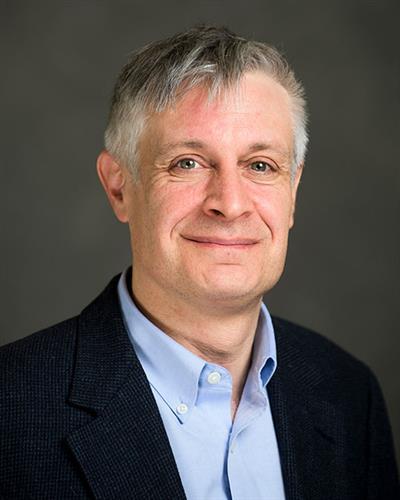
Peter Levine

Research/Areas of Interest
Political Theory, American Politics, Civic Studies
Education
- PhD, University of Oxford, Oxford, United Kingdom, 1992
- BA, Yale University, New Haven, United States, 1989
Biography
Peter Levine is the Associate Dean of Academic Affairs and Lincoln Filene Professor of Citizenship & Public Affairs in Tufts University's Jonathan Tisch College of Civic Life. He is a political philosopher and political scientist who specializes on civic life and has helped to develop Civic Studies as an international intellectual movement.
Levine graduated from Yale in 1989 with a degree in philosophy. He studied philosophy at Oxford on a Rhodes Scholarship, receiving his doctorate in 1992. Before coming to Tufts in 2008, he worked for Common Cause, the Institute for Philosophy & Public Policy at the University of Maryland, and the National Commission for Civic Renewal and helped to found and then led CIRCLE (The Center for Information and Research on Civic Learning and Engagement), which is now part of Tisch College. He is a full professor in Tufts' Political Science Department, directs the Civic Studies program, and holds secondary appointments in Philosophy, International Relations, Science and Technology Studies, and the Clinical and Translational Science Institute (CTSI).
In the domain of civic education, Levine was a co-organizer and co-author of The Civic Mission of Schools (2003), The College, Career & Citizenship Framework for State Social Studies Standards (2013) and The Educating for American Democracy Roadmap (2021). The first two are the sources of the "six promising practices" and the notion of "taking informed action" that are widely found in state and local policies and curricula. The last was released in 2021 and is receiving prominent attention.
Levine is the author of eight books, including most recently We Are the Ones We Have Been Waiting For: The Promise of Civic Renewal in America (Oxford University Press, 2013) and What Should We Do? A Theory of Civic Life (Oxford University Press, 2022).
He has served on the boards or steering committees of such civic organizations as AmericaSpeaks, the American Bar Association Committee's for Public Education, the Campaign for the Civic Mission of Schools, CivXNow, the Deliberative Democracy Consortium, Everyday Democracy, Educating for American Democracy, Discovering Justice, the Charles F. Kettering Foundation, and the Newspaper Association of America Foundation.
Levine graduated from Yale in 1989 with a degree in philosophy. He studied philosophy at Oxford on a Rhodes Scholarship, receiving his doctorate in 1992. Before coming to Tufts in 2008, he worked for Common Cause, the Institute for Philosophy & Public Policy at the University of Maryland, and the National Commission for Civic Renewal and helped to found and then led CIRCLE (The Center for Information and Research on Civic Learning and Engagement), which is now part of Tisch College. He is a full professor in Tufts' Political Science Department, directs the Civic Studies program, and holds secondary appointments in Philosophy, International Relations, Science and Technology Studies, and the Clinical and Translational Science Institute (CTSI).
In the domain of civic education, Levine was a co-organizer and co-author of The Civic Mission of Schools (2003), The College, Career & Citizenship Framework for State Social Studies Standards (2013) and The Educating for American Democracy Roadmap (2021). The first two are the sources of the "six promising practices" and the notion of "taking informed action" that are widely found in state and local policies and curricula. The last was released in 2021 and is receiving prominent attention.
Levine is the author of eight books, including most recently We Are the Ones We Have Been Waiting For: The Promise of Civic Renewal in America (Oxford University Press, 2013) and What Should We Do? A Theory of Civic Life (Oxford University Press, 2022).
He has served on the boards or steering committees of such civic organizations as AmericaSpeaks, the American Bar Association Committee's for Public Education, the Campaign for the Civic Mission of Schools, CivXNow, the Deliberative Democracy Consortium, Everyday Democracy, Educating for American Democracy, Discovering Justice, the Charles F. Kettering Foundation, and the Newspaper Association of America Foundation.